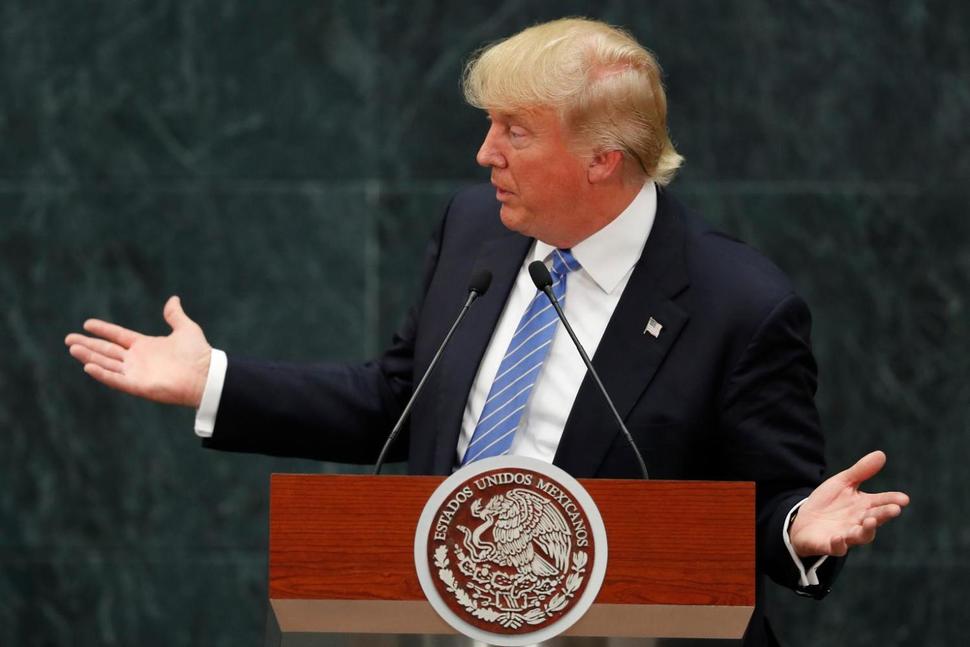Many Americans are tired of America’s globalist policies on foreign intervention, foreign aid, and foreign trade. From Bernie Sanders’ supporters on the left, to Trump fans on the right, they’ve arrived at the same conclusions from different ideological origins. They’re resentful of multinational corporations taking the biggest slice of the financial pie, exhausted by the never-ending cycle of foreign conflicts, and discouraged by the continued exodus of American jobs perpetuated by corporations increasing their bottom line with foreign labor while stashing trillions of dollars in profits in offshore accounts. Their anger is certainly justified. Statistics show that over the past few decades, productivity and wealth have skyrocketed, but most of those gains have gone to the wealthiest of our citizens. International trade agreements such as NAFTA failed to deliver on their guarantees to bring wealth and jobs to middle-class Americans. Fruitless and futile foreign conflicts such as the war in Iraq have strained our already stretched budget.
Americans’ desire for different foreign and trade policies has featured prominently in the 2016 presidential election, and has contributed to the success of Donald Trump’s candidacy. His slogan, “Make America Great Again” promises to restore America to what some view as its former grandeur. He tells us that we’ll win so much, we’ll just get sick of winning. Whether his policies would actually accomplish this is another story. Trump espouses a confusing and often contradictory mix of ideologies; swinging back and forth between isolationism and imperialism, and espousing economic protectionism while claiming to support free trade. Various foreign policy and trade experts have described his proposals as “incoherent” ”baffling” “nonsensical” and “fact-free,” and warn that his policies could be ruinous to American interests.
Donald Trump advocates a hands-off approach to Europe. He has been an outspoken critic of NATO, considered by many the most successful and enduring military alliance in modern history. Trump called NATO “obsolete” and stated (to the alarm of various overseas powers) that we’d only provide assistance to our NATO allies if they “fulfull their [financial] obligations” to America. Trump was a vocal supporter of Brexit, the British vote to leave the European Union, calling himself “Mr. Brexit” despite having no involvement with the Brexit vote and appearing not to have known what Brexit was just a few weeks prior to adopting the nickname. He has proposed a policy of reduced intervention in response to Russian aggressions in Eastern Europe, musing that he may lift economic sanctions that the Obama administration imposed on Russia in retaliation for their occupation of Crimea. Trump’s “live and let live” philosophy towards Europe does not extend to the middle-east, where he often promises actions so aggressive that they could violate international law. He has promised to “bomb the shit out of” ISIS, and views killing the families of terrorists and reinstating waterboarding “and worse” as a viable strategy to combat the terrorist group. Trump shocked pundits by advocating nuclear proliferation, despite denying these statements later. His lament that we should have taken Iraq’s oil reserves by force, proclaiming that “to the victor go the spoils,” is the epitome of imperialism.
His views on foreign trade are similarly confounding. He promises to strong-arm our trade partners, such as China and Mexico, into “better” trade agreements, in part by imposing heavy tariffs on imported goods, raising concerns among economists of a trade war in the event of a Trump presidency. He vows to bring jobs back to America, although many have observed that this promise rings hollow coming from a man with a long history of hiring foreign workers for subpar wages, not to mention a clothing line produced in China, Mexico, and Bangladesh, and hotels built of Chinese-imported steel.
Hillary Clinton’s policies stand in stark contrast to Donald Trump’s. Clinton has vowed to support our NATO allies, reassuring them that if she is elected, America will not leave them in the lurch in the face of foreign conflicts. On trade, Clinton is a supporter of free trade and cautiously favors international trade agreements. While she voted against CAFTA as a Senator, and walked back her support of the Trans-Pacific Partnership (TPP) during this election, she has nevertheless stated on many occasions that she believes a global economy is the best way to ensure American prosperity. Clinton’s views on foreign policy likewise consist of a global vision. She is willing to engage in foreign affairs, committing American troops if necessary, and her views have engendered praise from a significant number of foreign policy experts, including many prominent Republicans. Her muscular stance on foreign policy has also spawned criticism of Clinton as a hawk, by those that feel America should reduce its involvement in foreign affairs.
So why don’t we stop all of this foreign involvement, and devote all of our resources to our problems back home? It’s an old argument, one that dates all the way back to the founders of our nation. The Federalists held the belief that Americans, in order to protect our national interests, had to be a dominant presence around the world, which meant taking part in foreign conflicts, maintaining commercial ties with financial interests around the world, and maintaining a strong standing military. The Anti-Federalists believed the opposite- that we should remain friendly with overseas powers but largely concern ourselves with domestic issues, unless there was a pressing national reason to do otherwise. It’s the globalist thinking that informs many military policy and trade conventions today. Hillary Clinton’s philosophy regarding trade and foreign affairs falls right in line with this school of thought.
It’s a common refrain among Americans that we’re the greatest country on earth. Donald Trump promises to make our country great, but it’s doubtful that he could accomplish this while taking stances that minimize or even damage America’s relationship with the rest of the world. Foreign policy is messy and expensive, and mistakes in that area can be costly; the Iraq war, for example, is widely considered one of the biggest foreign policy blunders in modern history. It can also be argued that we have pushed globalization too far, or have otherwise caused some Americans to be left behind by embracing global trade. Despite the potential for mistakes, the alternative of sequestering America behind walls and rejecting opportunities to trade with international partners would drastically reduce American influence, and by extension, American prosperity. Wherever you fall on the spectrum, it’s hard to argue that America could remain the largest world power without maintaining a dominant presence on the world stage.
 Rachel Eckhardt is an avid political enthusiast, litigation manager, military veteran, and creator of The Illusion of Choice, a blog covering American politics and current events.
Rachel Eckhardt is an avid political enthusiast, litigation manager, military veteran, and creator of The Illusion of Choice, a blog covering American politics and current events.
Follow Rachel on Facebook, or on Twitter at @Rachel_Eckhardt.

